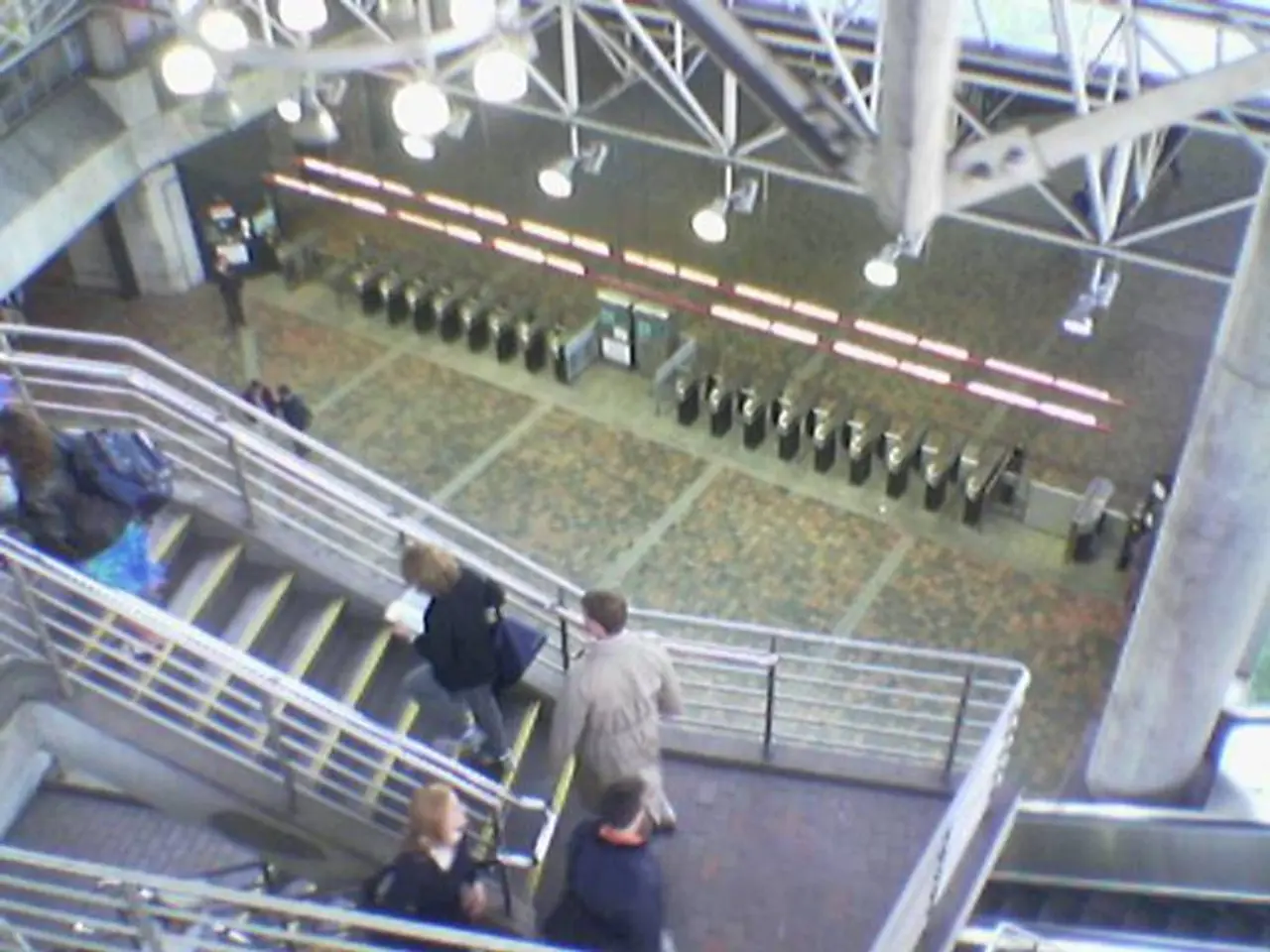TSA Seeks Industry Insights on Advanced Screening Techniques for Airports of Tomorrow
TSA Seeks Innovative Solutions for Modern Airport Security
The Transportation Security Administration (TSA) has issued a Request for Information (RFI) for the "Checkpoint of the Future," marking a significant step towards modernizing airport security checkpoints. The goal is to identify technology-driven methods that improve aviation security effectiveness, passenger experience, throughput, and operational efficiency while reducing operating costs, workforce needs, and manual labor [1][2][3].
The RFI, issued in July 2025, is primarily focused on the Screening Partnership Program (SPP) and the creation of a future-ready checkpoint. The TSA is inviting private sector vendors to propose advanced, automated, and AI-enabled solutions that streamline workflows, make airport screening faster, more secure, and easier on the traveling public [1][2][3][4].
The proposed systems should integrate AI-driven threat detection, remote screening, automation, and robotics for passenger and baggage screening. Solutions must comply fully with TSA's performance standards and regulatory oversight, support open standards-based data transmission to the TSA Cloud, and be adaptable to surge events or staffing constraints [1][2].
Interested vendors can direct their questions and submissions to TSA's Phillip Smith at Contracting and Procurement ([email protected]) [1][4]. Submissions were due by August 1, 2025, and vendors were expected to detail technology architecture, operational strategies, and demonstrate compliance with TSA standards in their proposals [1][4].
The TSA's broader plan to modernize the airport experience includes the elimination of the mandate for passengers to remove their shoes [5]. This initiative is part of the TSA's drive to drive a golden age of travel through future innovations.
The focus remains on integrating AI, automation, biometrics, and remote screening capabilities to achieve this goal while maintaining compliance with safety and security standards and using cost-efficient solutions [1][2][3]. Responses to the RFI will inform future pilots and acquisition strategies, setting the stage for a new era in airport security.
[1] Transportation Security Administration. (2025). Request for Information (RFI) for the "Checkpoint of the Future." Retrieved from https://www.tsa.gov/sites/default/files/rfi-checkpoint-of-the-future.pdf
[2] Transportation Security Administration. (2025). Screening Partnership Program (SPP). Retrieved from https://www.tsa.gov/sites/default/files/spp-fact-sheet.pdf
[3] Transportation Security Administration. (2025). TSA Acting Administrator Ha Nguyen McNeill announces elimination of mandate for passengers to remove shoes during airport security screening. Retrieved from https://www.tsa.gov/news/press-releases/2025/tsa-acting-administrator-ha-nguyen-mcneill-announces-elimination-mandate
[4] General Services Administration. (2025). Participation details for the TSA's RFI. Retrieved from https://www.gsa.gov/rfi-checkpoint-of-the-future
[5] Transportation Security Administration. (2025). TSA Acting Administrator Ha Nguyen McNeill announces elimination of mandate for passengers to remove shoes during airport security screening. Retrieved from https://www.tsa.gov/news/press-releases/2025/tsa-acting-administrator-ha-nguyen-mcneill-announces-elimination-mandate
The Transportation Security Administration (TSA) is inviting private sector vendors to propose advanced, automated, and AI-enabled solutions, focusing on the Screening Partnership Program (SPP) and the creation of a future-ready checkpoint, as part of its request for innovative solutions to modernize airport security checkpoints (1). The proposed systems should integrate AI-driven threat detection, remote screening, automation, and robotics for passenger and baggage screening and comply with TSA's performance standards and regulatory oversight (1).




